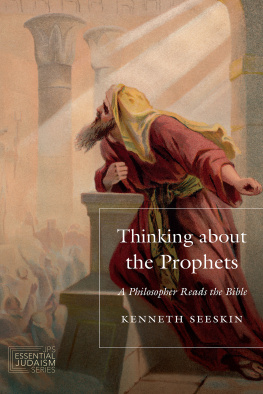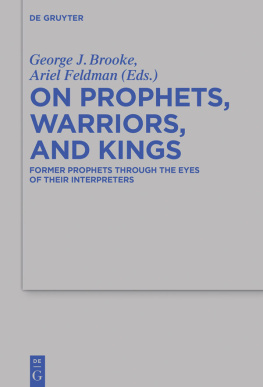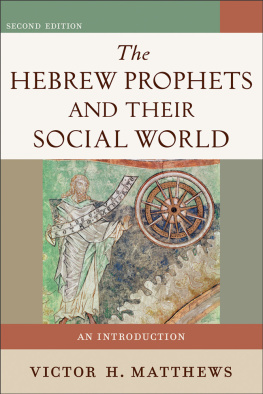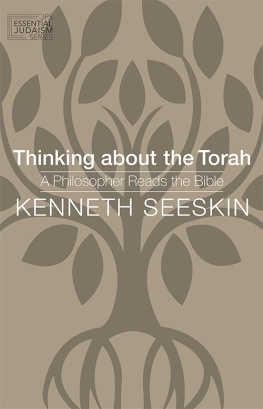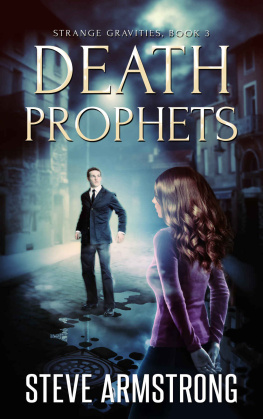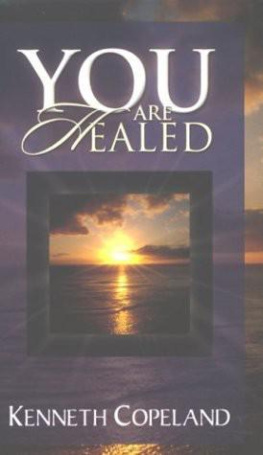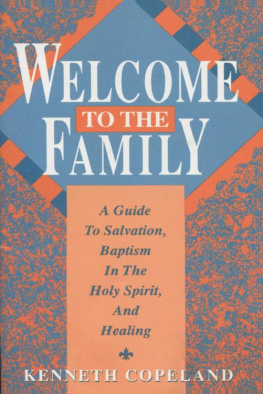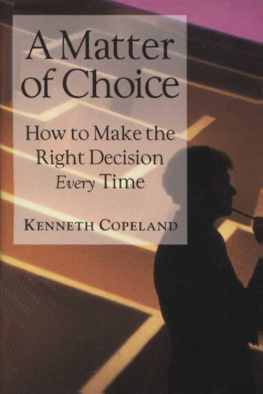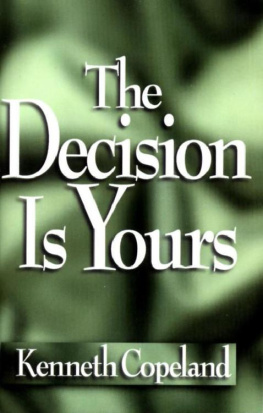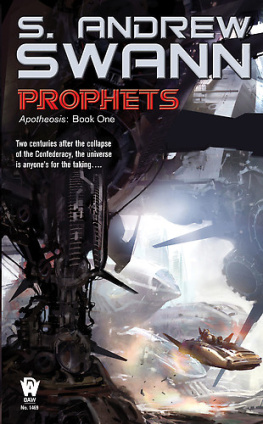Kenneth Seeskin - Thinking about the Prophets
Here you can read online Kenneth Seeskin - Thinking about the Prophets full text of the book (entire story) in english for free. Download pdf and epub, get meaning, cover and reviews about this ebook. publisher: The Jewish Publication Society, genre: Religion. Description of the work, (preface) as well as reviews are available. Best literature library LitArk.com created for fans of good reading and offers a wide selection of genres:
Romance novel
Science fiction
Adventure
Detective
Science
History
Home and family
Prose
Art
Politics
Computer
Non-fiction
Religion
Business
Children
Humor
Choose a favorite category and find really read worthwhile books. Enjoy immersion in the world of imagination, feel the emotions of the characters or learn something new for yourself, make an fascinating discovery.
- Book:Thinking about the Prophets
- Author:
- Publisher:The Jewish Publication Society
- Genre:
- Rating:5 / 5
- Favourites:Add to favourites
- Your mark:
- 100
- 1
- 2
- 3
- 4
- 5
Thinking about the Prophets: summary, description and annotation
We offer to read an annotation, description, summary or preface (depends on what the author of the book "Thinking about the Prophets" wrote himself). If you haven't found the necessary information about the book — write in the comments, we will try to find it.
Thinking about the Prophets — read online for free the complete book (whole text) full work
Below is the text of the book, divided by pages. System saving the place of the last page read, allows you to conveniently read the book "Thinking about the Prophets" online for free, without having to search again every time where you left off. Put a bookmark, and you can go to the page where you finished reading at any time.
Font size:
Interval:
Bookmark:
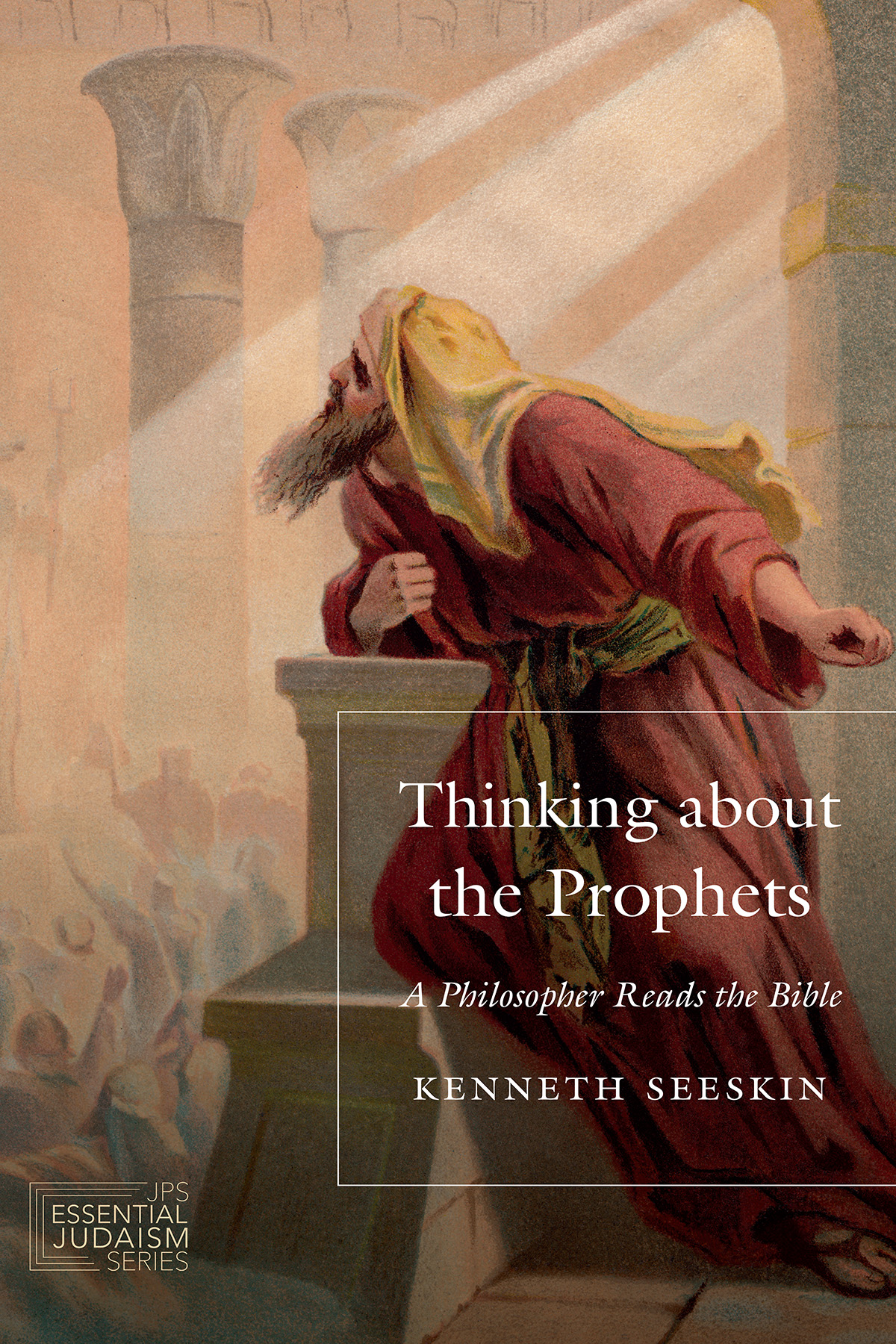
Thinking about the Prophets is a significant contribution to understanding the institution of Israelite prophecy as fundamentally an ethical project and to understanding the prophets as moral thinkers taking their rightful place in the long history of moral social thinkers in the Jewish and Western philosophical tradition.
Steven P. Kepnes, professor of world religions and of religion and Jewish studies, Colgate University
Seeskin innovatively shows us that the prophets were thinkers too and that their thinking has had an indelible impact on Western understandings of God, the world, and human responsibility. Erudite and accessible as well, this work would be an excellent text in college-level courses on biblical literature or Jewish thought and in adult education settings.
Judith R. Baskin, Philip H. Knight Professor of Humanities Emerita, University of Oregon

Kenneth Seeskin

The Jewish Publication Society | Philadelphia
University of Nebraska Press | Lincoln
2020 by Kenneth Seeskin
Cover designed by University of Nebraska Press; cover image: iStock.com / ZU _09.
Author photo Andrew Collings.
All rights reserved. Published by the University of Nebraska Press as a Jewish Publication Society book.
Library of Congress Cataloging-in-Publication Data
Names: Seeskin, Kenneth, 1947 author.
Title: Thinking about the prophets: a philosopher reads the Bible / Kenneth Seeskin, The Jewish Publication Society, Philadelphia.
Description: Lincoln: University of Nebraska Press, 2020. | Series: JPS essential Judaism | Includes bibliographical references.
Identifiers: LCCN 2020004127
ISBN 9780827615052 (paperback)
ISBN 9780827618527 (epub)
ISBN 9780827618534 (mobi)
ISBN 9780827618541 (pdf)
Subjects: LCSH: Bible. ProphetsCriticism, interpretation, etc. | Bible. JobCriticism, interpretation, etc. | Bible. ProphetsInfluence. | Bible. JobInfluence. | Spiritual lifeJudaism. | Spiritual lifeChristianity.
Classification: LCC BS1286 .S44 2020 | DDC 224/.06dc23
LC record available at https://lccn.loc.gov/2020004127
The publisher does not have any control over and does not assume any responsibility for author or third-party websites or their content.
To the memory of Sherry Wasserman
Like Thinking about the Torah, this book is the result of years of teaching, studying, and writing on questions raised by the Hebrew Bible. I acknowledge the support of friends and colleagues who have helped shaped my thinking. In no particular order, they include Michael Morgan, Adriano Fabris, Menachem Kellner, Regina Schwartz, Lenn Goodman, Barry Wimpfheimer, Steven Nadler, Joseph Edelheit, David Novak, Martin Kavka, Haim Kreisel, David Shatz, Roslyn Weiss, Josef Stern, Charles Manekin, Benjamin Sommer, James Diamond, Alan Mittleman, Laurie Zoloth, Gary Saul Morson, Stefano Perfetti, and Leora Batnitzky. Special thanks are due to my friend and former colleague Mira Balberg, for lengthy discussions and detailed comments on every aspect of this book.
I also wish to thank Rabbi Barry Schwartz, director of The Jewish Publication Society (JPS), and Joy Weinberg, the JPS managing editor, for valuable editorial assistance. It is rare in this day and age for an author to get sentence-by-sentence feedback on his or her work, but that is exactly what The Jewish Publication Society offered me, and I am extremely grateful. I am also grateful to the University of Nebraska Press, publishing partner of JPS, for providing an attractive venue for authors like me. Finally, I want to thank Benjamin Ricciardi for research assistance.
All quotations from the Hebrew Bible are taken from the NJPS (New Jewish Publication Society) translation of 1985 unless otherwise noted. All Talmudic citations are from the Babylonian Talmud unless otherwise indicated by the letter Y for the Jerusalem Talmud.
Thinking about the Prophets: A Philosopher Reads the Bible looks at the great literary prophets whose ministry ran from the eighth to the sixth centuries BCE : Amos, Hosea, First Isaiah, Jeremiah, Ezekiel, Second Isaiah, and Job. Their teachings occupy a pivotal position in the history of both Judaism and Christianity and constitute one of the great achievements of the human spirit.
Important as these messages are, however, they are not always easy to stomach, and in this day and age, they are often forgotten. Within the synagogue on Sabbath and festival days, discussions typically focus on the Torah portion. Short passages from the prophets are relegated to the haftarah and, in my experience, rarely discussed in detail, if discussed at all. Meanwhile, in churches, the prophets are read mainly as forerunners to Jesus. In short, the books of the prophets are rarely read in full.
For some modern readers, the message of the prophets is too controversial to put before a public audience. As the twentieth-century theologian Abraham Joshua Heschel remarked, they are some of the most disturbing people who ever lived. Many passages portend doom. Others are critical of existing religious practices. Thus Amos 5:2122:
I loathe, I spurn your festivals,
I am not appeased by your solemn assemblies.
If you offer Me burnt offeringsor your meal offerings
I will not accept them;
I will pay no heed
In a nutshell, Amos is telling us that the religion his contemporaries practiced was a sham.
Might God be just as disdainful of our festivals and assemblies today? The modern biblical scholar Marc Brettler asks how we would respond to someone who stood up in public and said:
Thus said the Lord. / For three transgressions of the residents of Manhattan. / For Four, I will not revoke it: / Because they shop in expensive shops and neglect the poor, / Eat in five-star restaurants while others starve. / I will send down fire upon Fifth Avenue, / A conflagration on 57th St. / And it shall devour the fancy penthouses, /Destroy the mansions. / And the people of the city shall be exiled to Californiasaid the Lord.
Seen in this light, Amos and the other prophets pose a serious threat to our current ways of doing things. Not surprisingly, todays religious leaders typically water down the prophets messages, read them in a perfunctory manner, or do not read them at all. And yet, to Amoss point, I argue in the pages that follow that neither he nor the rest of the prophets wanted the people to relinquish their festivals and assemblies altogether. Rather, they wanted people to ask whether their festivals and assemblies fulfill the purpose for which they were intended. Do they enhance moral or religious sensitivity? Do they help us to follow in the ways of God, which means (among other things) to insist on justice and protect the poor?
What is true of Amos is also true of those who followed in his footsteps: They challenged existing authority and established new ways of thinking. Hosea accused the people of breaking the promise they made to God. First Isaiah agreed with Amos that God despised the peoples festivals, and went on to tell a king facing invasion by a foreign power to trust in God rather than horses and chariots. Jeremiah mocked the secular and religious leadership of his day and warned the people that taking refuge in the Temple would not help them. His near contemporary Ezekiel said that in Gods eyes, the sins of Israel are even worse than those of its neighborsso much so that when punishment is inflicted, parents will eat the flesh of their children and children will eat the flesh of their parents.
Next pageFont size:
Interval:
Bookmark:
Similar books «Thinking about the Prophets»
Look at similar books to Thinking about the Prophets. We have selected literature similar in name and meaning in the hope of providing readers with more options to find new, interesting, not yet read works.
Discussion, reviews of the book Thinking about the Prophets and just readers' own opinions. Leave your comments, write what you think about the work, its meaning or the main characters. Specify what exactly you liked and what you didn't like, and why you think so.

